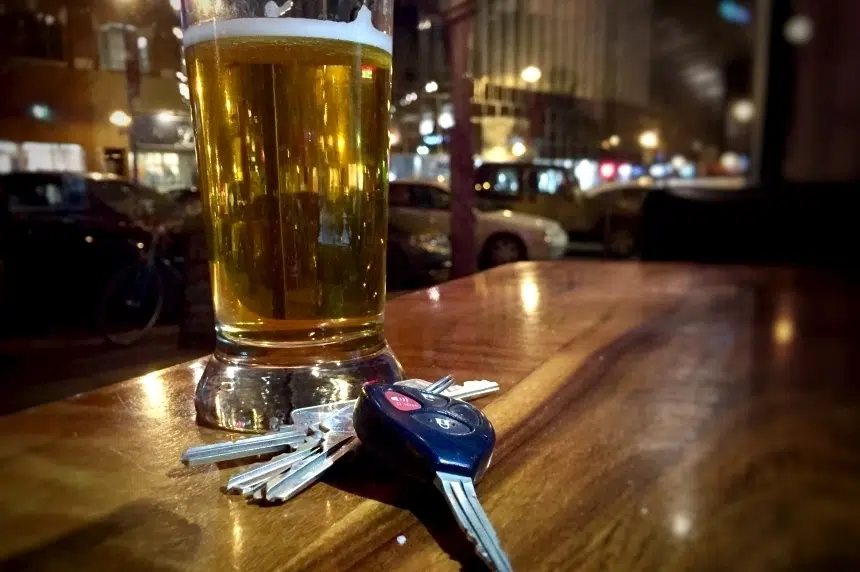People living in Saskatchewan will have to think carefully about their ride after they ring in the New Year.
As of Jan. 1, experienced drivers with blood alcohol content of .04 or higher will face penalties, while drivers under 21 will face a no-tolerance policy.
“New laws take effect at 12:01 a.m.,” said SGI Minister Joe Hargrave.
“So make sure to plan a safe ride home from any New Year’s Eve celebrations if you plan on drinking.”
Included in the new rules are instant three-day vehicle seizures for drivers caught with a blood alcohol content between .04 and .08 on a first offence. The length of the seizure increases with every offence, with interlock systems being installed after a third infraction.
Those who register a blood alcohol content level of .16 or higher – or who refuse to provide a breath sample – will face what the government is touting as the “strongest” interlock system in Canada.
First offenders will be placed in the program for two years, while second offenders will be forced to undergo five years. Subsequent offences mandate 10 years with an interlock ignition.
The new legislation comes just weeks after Statistics Canada confirmed Saskatchewan still has the worst drinking and driving rate in the country, matching the national average from 1986.
A fall survey showed 20 per cent of residents in the province believed drinking and driving was okay, if it was for a short distance on a quiet road.
Last year, SGI registered 1,200 drinking and driving collisions, resulting in 54 deaths and 580 injuries.
“Tougher consequences… drive home the point that you risk not only your life, but the lives of everyone else on the road when you choose to drive impaired,” Hargrave said.
New cellphone rules
The New Year will also bring changes to rules surrounding the use of cellphones while driving.
Experienced drivers will be banned from holding cellphones at all while driving, but will be allowed to use one-touch or voice commands if the phone is mounted to the dashboard.
New drivers will be banned from using a cellphone at all, even through Bluetooth technology.
The legislation closes loopholes in the law that allowed those charged with distracted driving to challenge the definition of “using” a cellphone.
The new law bans the “holding, viewing, using or manipulating” of a phone.











